In an interconnected world, global businesses are vulnerable to natural disasters, political instability, and other crises. This post explores the importance of crisis response international services, comparing the leading providers and offering insights into selecting the right solution for your needs.
As global crises become more frequent, businesses face risks such as pandemics, natural disasters, and civil unrest. These events can disrupt operations and endanger employees, making quick and effective crisis response vital. Companies that fail to respond in time may face severe financial losses, operational downtimes, and reputational damage.
Businesses are responsible for ensuring the safety of their employees, especially when operating internationally. Fulfilling duty of care obligations is not only a legal requirement but also critical for maintaining trust. International safety regulations demand that businesses have crisis response plans in place. Crisis response services play a key role in maintaining business continuity and protecting employees during emergencies.

When a crisis occurs, 24/7 global coverage is non-negotiable. Reliable crisis response providers ensure your business has round-the-clock support, regardless of where your operations are located. Tools like satellite communication, mobile apps, and instant alerts allow for real-time updates, keeping your teams and decision-makers aligned, even in remote or unstable regions. The ability to maintain constant communication ensures that the response is quick and well-coordinated, minimising disruptions to your operations and ensuring that safety is prioritised at every step.
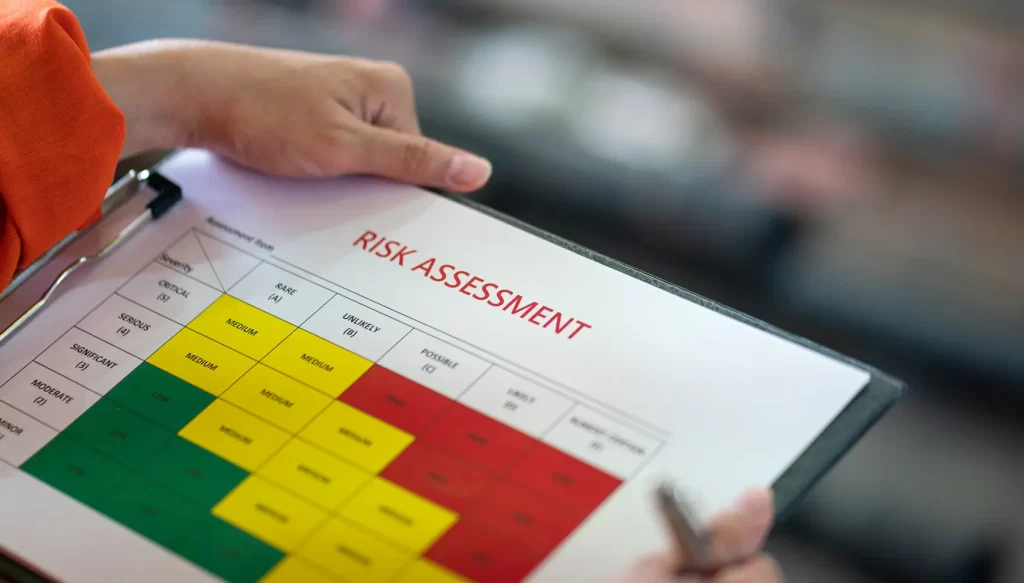
A key feature of effective crisis response services is proactive risk assessment. By thoroughly evaluating potential threats, businesses can mitigate issues before they escalate. Crisis response providers offer customised contingency plans tailored to the specific needs of your business. These plans include strategies for responding to natural disasters, political instability, and security risks. Having a clear, actionable plan in place not only helps manage immediate threats but also strengthens long-term business resilience.
Several crisis response companies stand out for their ability to handle emergencies on a global scale. International SOS offers in-house medical solutions, and travel security services with a focus on multinational corporations, especially in regions where medical access is a priority. Crisis Response International (CRI) focuses heavily on faith-based crisis management and humanitarian response, making them ideal for non-profits and mission-driven organisations. NGS, however, provides a broader range of ISO 31030 compliant solutions, and its unbiased vetted provider network ensures faster and more adaptable responses. This flexibility gives NGS a subtle edge in both speed and operational precision, making it the go-to for businesses.
When selecting a crisis response provider, businesses should consider several key factors:
By evaluating these factors, businesses can ensure they select a crisis response provider that matches their operational needs.
Modern crisis response relies heavily on advanced technology to streamline communication and improve response times. Tools like geolocation tracking, cloud-based communication systems, and mobile alerts enable real-time situational awareness, helping crisis teams coordinate more effectively. For example, geolocation tracking helps locate individuals during emergencies, ensuring faster rescue or evacuation efforts. Cloud communication tools allow multiple teams to share critical information quickly, even across global locations. These technologies have become indispensable for minimising risk and providing efficient, timely responses to crises.
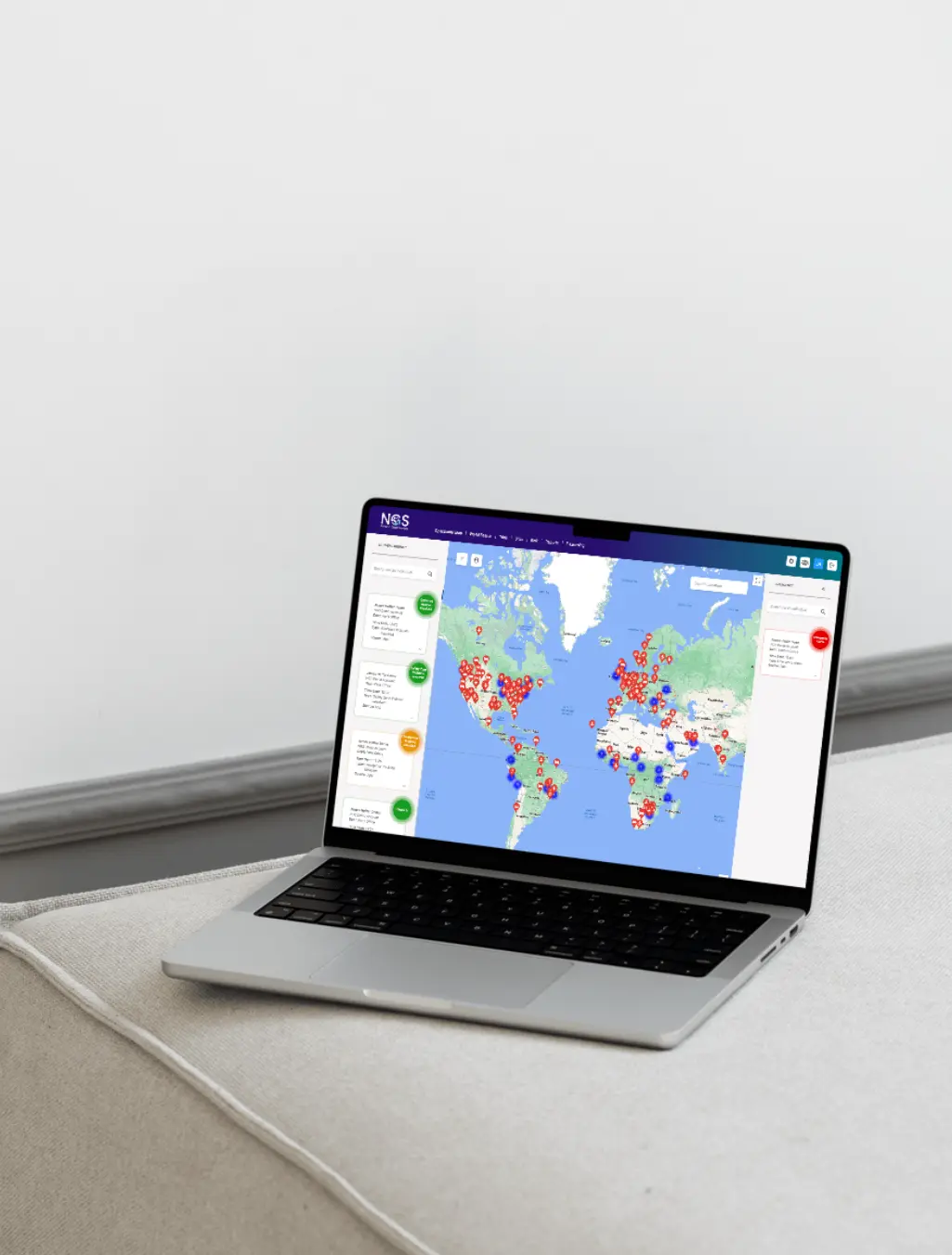
Mobile apps have revolutionised crisis management by enabling travellers and businesses to stay connected and informed during emergencies. These apps typically offer features like SOS buttons, real-time alerts, and location sharing to enhance safety and communication. For example, many top crisis response companies provide apps that allow users to send SOS signals in emergencies or share their location with crisis teams for quick assistance. Additionally, the apps often include push notifications for live updates on evolving threats, ensuring that businesses and travellers are always informed.
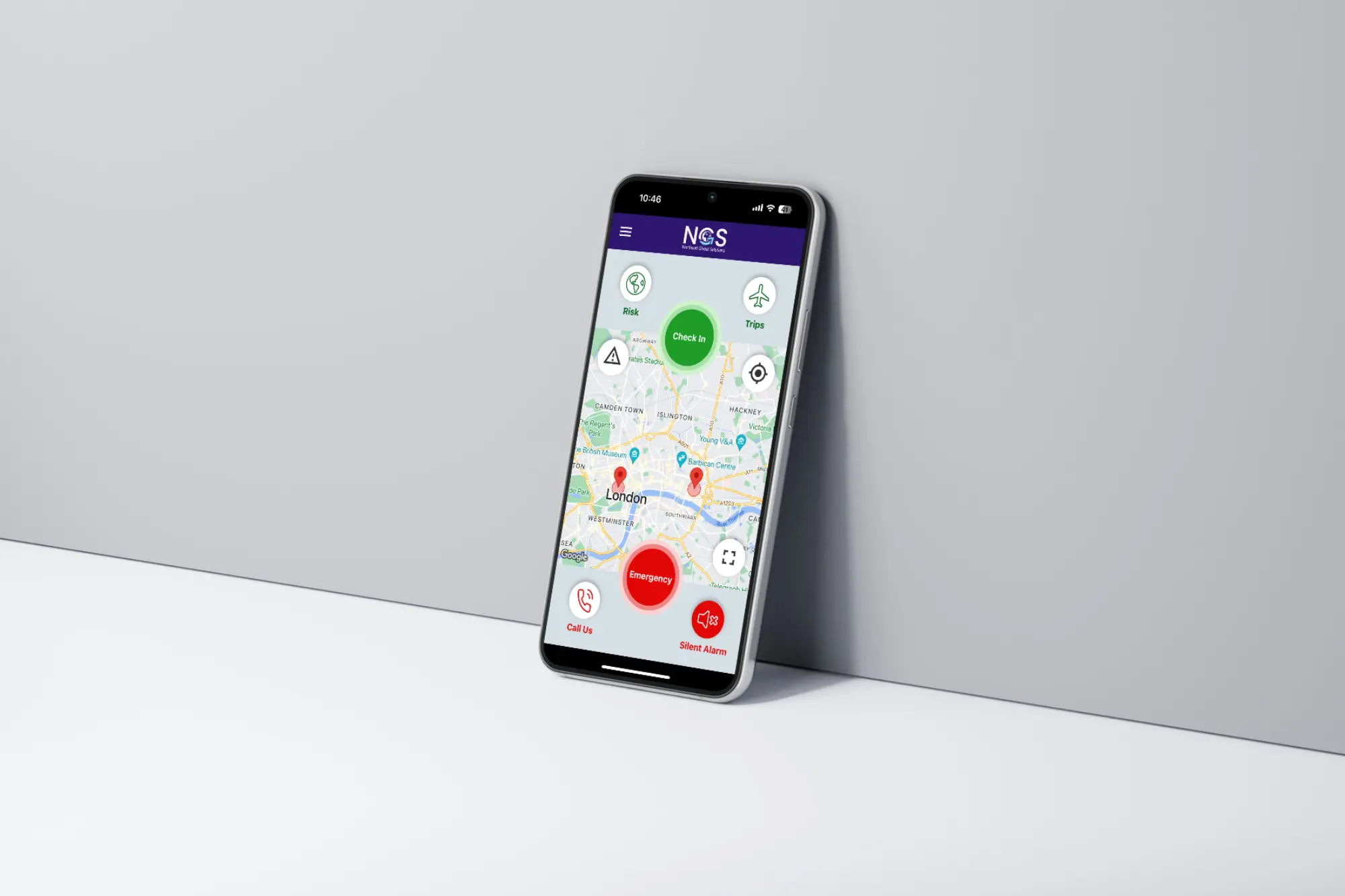
This combination of tools ensures that crisis response teams can handle emergencies with precision and speed, providing users with confidence that they are supported no matter where they are.
During the intense flooding crisis in Jebel Ali, Dubai, NGS demonstrated its ability to deliver timely and effective crisis response. A client urgently contacted NGS after two team members became stranded at their facility. These employees had been trapped for nearly two days with rapidly depleting food supplies and no way out due to the flooded roads.
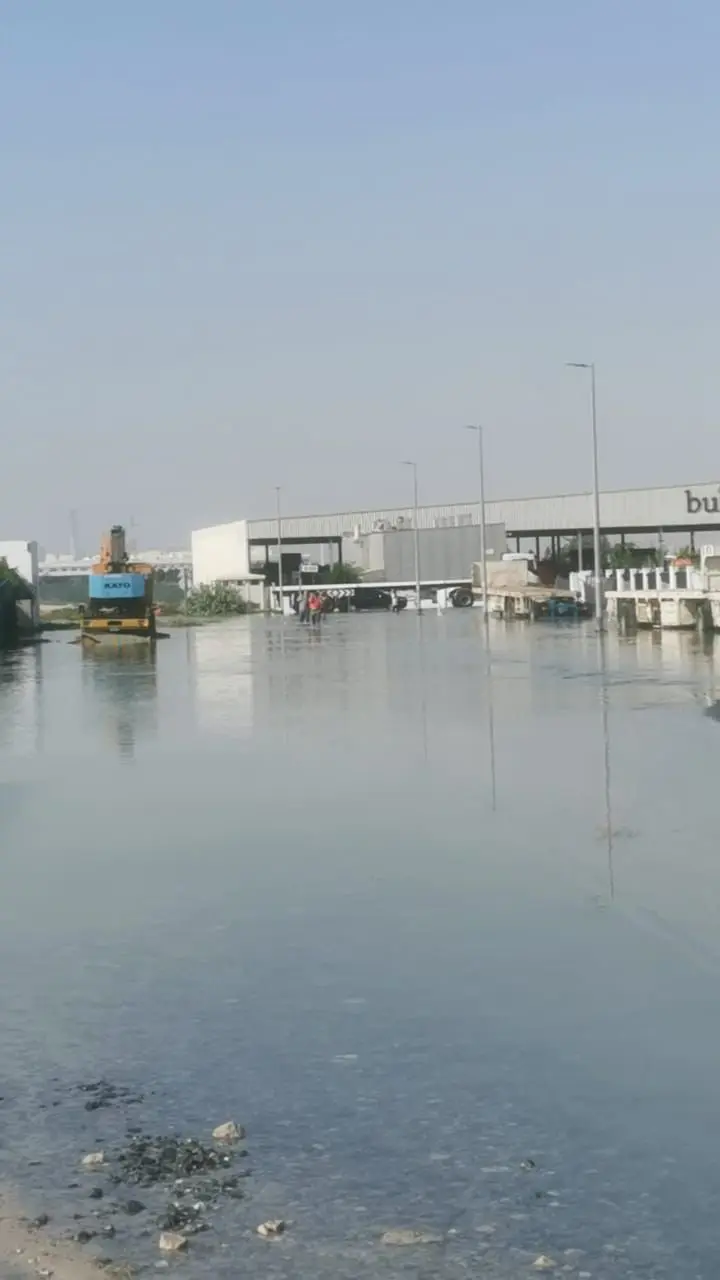
Recognising the severity of the situation, NGS immediately activated its local network. With night-time conditions adding to the risk, the team advised the client’s employees to remain in place until daybreak, while NGS maintained 24/7 communication to offer updates and support. At first light, NGS deployed a security-trained driver with a high-clearance vehicle. Despite the chaotic conditions, the driver reached the stranded employees in just 90 minutes and safely evacuated them to a secure location.

This swift operation underlined NGS’ expertise in mobilising resources under pressure, reinforcing the value of having a responsive and well-connected crisis management partner. The client’s team expressed their gratitude for NGS’ fast response and professional handling of the emergency.
This case illustrates the importance of preparedness, real-time communication, and rapid response in crisis management. NGS’ ability to maintain constant contact, assess the evolving situation, and mobilise local assets proved crucial. The successful resolution of the crisis highlights several best practices:

Keeping the client updated throughout ensured clarity and reduced stress for the stranded employees.

Night-time conditions could have worsened the crisis, but proactive planning prevented further risks.
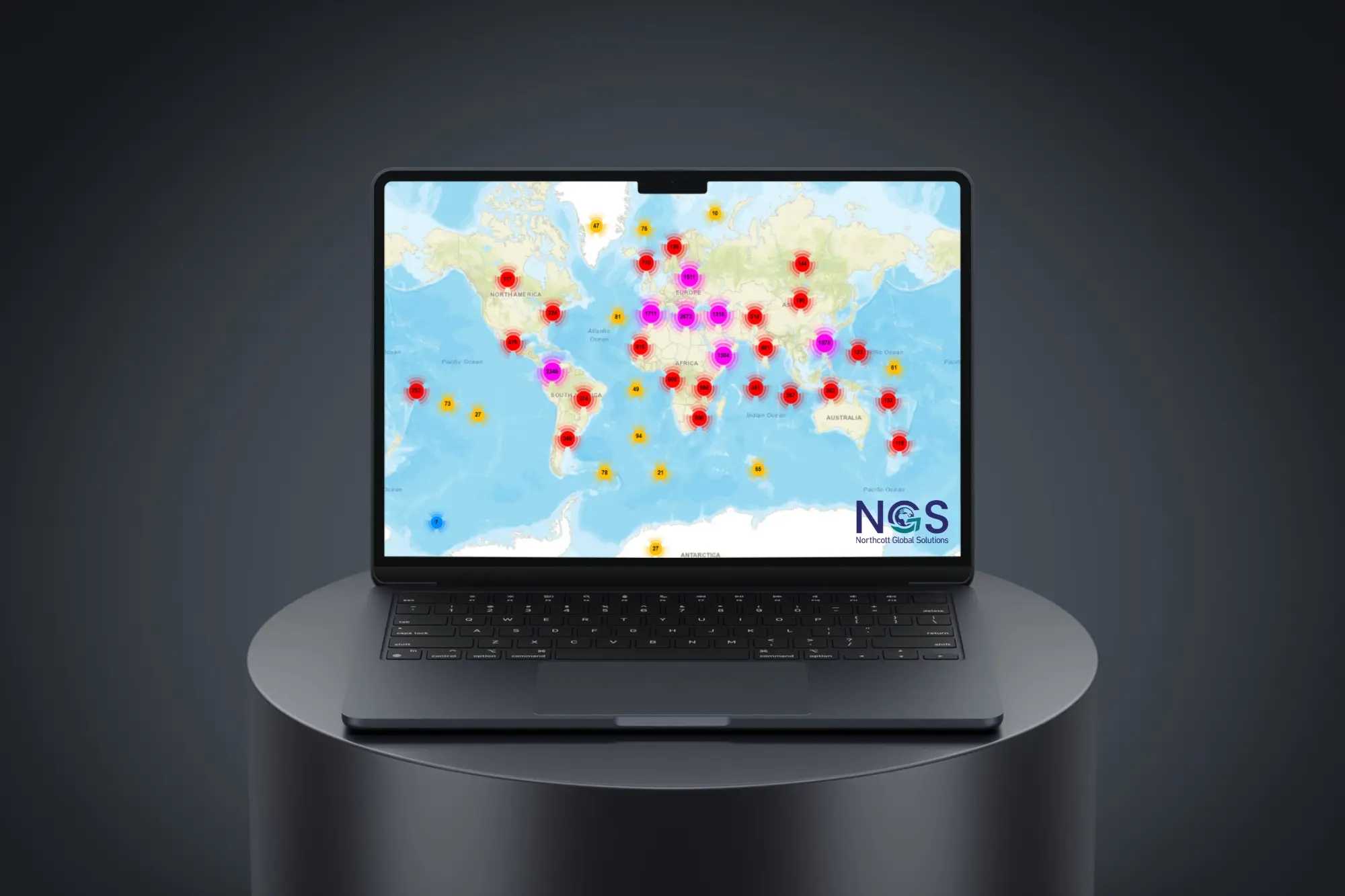
The ability to deploy a local resource in challenging conditions is invaluable for timely evacuations.
Through its rapid response and on-the-ground coordination, NGS safeguarded its client’s employees, reaffirming the company’s commitment to delivering top-tier crisis management solutions.
Global operations are increasingly vulnerable to crises such as natural disasters, security threats, and civil unrest. A well-structured crisis response plan ensures that businesses can protect their employees, assets, and reputation during emergencies. Without it, companies risk operational disruptions, financial losses, and legal complications. By being proactive, businesses can mitigate these risks and safeguard their future, ensuring continuity even in the face of unexpected challenges.
Is your current crisis management plan sufficient? NGS is here to support your business with customised solutions tailored to your specific needs. We offer 24/7 global support, ensuring you’re prepared for any situation. Book a consultation with NGS today to develop a crisis response plan that not only protects your employees but also keeps your operations running smoothly in any emergency.